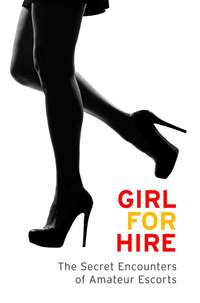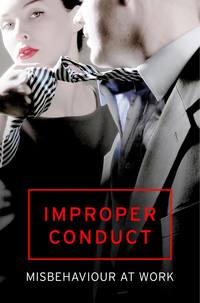
Полная версия
Underground
‘Pardon me, Mr Leyland?’ said Uncle Bob. ‘What was that, sir?’
‘I can’t breathe,’ Leyland whispered.
Uncle Bob was off his seat at once, propriety and reserve forgotten, reaching for the president’s neck – then exclaiming in frustration, tearing the gloves from his hands, unbuttoning Leyland’s overcoat down to the middle of his chest. Carlens leapt to his feet, and Merrill as well, their hats bumping against the compartment roof, although there was nothing at all that either could do. Beyond Uncle Bob’s shoulder, Merrill could see the president pulling feebly at the frills that lined his shirt front, attempting to undo his collar.
Leyland managed to inhale, gasping like a man surfacing after a deep dive. He took four more heaving breaths, and nodded to Uncle Bob to indicate respite. The rest of them relaxed a fraction, and were starting to return to their seats when as one they realized that the president was tipping slowly to the side, towards the window. Carlens lunged in to support him. Leyland’s head lolled horribly, the topper falling to the floor. Even in the compartment’s weak gaslight Merrill could see that he was mortally pale.
‘What is this?’ asked Carlens. The private secretary’s cool urbanity was gone; he sounded fearful. ‘Could it – could it be poison?’
Uncle Bob was looking hard across the carriage, to where the lights of the next station were just coming into view. ‘His heart,’ he said, as the train left the tunnel. ‘I’ve seen it before.’
Elbowing Merrill aside, he went to the door, wrenched down the window and shouted for assistance, his head passing mere inches from the startled crowd that lined the platform. The train shook to a halt. A noise came from the president, a tiny croak, along with the slightest twitching motion. Uncle Bob went back to him. Carlens stepped away and sat opposite. Merrill stood fixed in place, able only to stare.
‘Merrill,’ Uncle Bob snapped. He hesitated, then softened his tone. ‘James. Come here, lad. Help me lift him out.’
Leyland was heavy despite his leanness. Merrill stood behind, his arms around the millionaire’s frilled chest, the fellow’s shoulder-blades jutting into his thighs. It took a good deal of concentration to edge him through the doorway without knocking his head, which without its topper seemed dreadfully vulnerable and exposed. At the same time, however, Merrill knew that his efforts were merely for show, for there could be little doubt that this was no fainting fit or fleeting ailment. Frederick Leyland was at the point of death, if he had not passed it already. He had no more breath or movement in him.
A station guard was there to meet them, drawn over by Uncle Bob’s bellows. Behind him, a number of other passengers stood in a loose semicircle, all craning necks and questioning eyes. Sight of the president stopped the guard mid-query; he turned and attempted to contain the gathering crowd. This great giant of British business was laid there on the underground platform, parallel to the train, as respectfully as they could manage. Uncle Bob set down the legs, then came to help Merrill with the chest and head. Carlens was standing half out of the carriage, his posture slack, robbed of purpose; the black topper, rather dusty now, hung limply in his hands.
The crowd was growing steadily – a fellow lying dead, people were saying, right there by the train! Merrill moved back. Before long he heard Leyland’s name, a shiver of recognition passing through the station, further increasing the interest. They were at Blackfriars. The station was in an open trench, only one level below the street. Its platforms were under cover, but above the trains was the evening sky; the tops of buildings, touched with gaslight; and St Paul’s again, from the other side, glimpsed through the rising steam.
Someone was praying. Uncle Bob knelt by the body to put his ear to the president’s breastbone, but heard nothing. Merrill put his hands in his pockets, not knowing what else to do with them. He looked off to the platform’s end and found himself imagining a multitude – every enemy, living and dead, that Leyland had acquired during the course of his extraordinary, cold-hearted existence, filing down the double staircase. This ethereal company walked in procession between the wrought-iron pillars and drifting clouds of coal smoke, joining the circle pressing in around the dead man. Few showed any sign of grief. Indeed, most were well satisfied, and a few visibly glad; others positively frothed with fury, mouthing curses, ready to spit on the hated figure where it lay. There were the shipping partners from Liverpool, whom Leyland had knifed in the back; the ruined competitors, the discarded mistresses, the man in the blue sack coat from Cannon Street station; the unwanted wife standing quietly dignified, her face behind a veil; even the artist Whistler, who Merrill had once seen caricatured in Vanity Fair – a dapper little Yankee with a monocle and a bamboo cane, peering over with grim curiosity.
‘James,’ said Uncle Bob. ‘James, we need to fetch a doctor.’
Merrill blinked; the vision was dispelled. He stared down at the black legs, sticking out so rigidly. The disquieting whiteness of the face. ‘A doctor,’ he repeated.
‘An examination must be made,’ Uncle Bob explained, his voice hushed and urgent. ‘A declaration of death. Before we can have him removed from this place.’ He pointed towards the exit. ‘Quickly, boy. Go.’
The road outside the station ran between Ludgate Circus and the mouth of Blackfriars Bridge, and was as clogged with people and traffic as any in London. It was bitterly cold as well, a wintry breeze whipping in from the river. Merrill emerged from the concourse and began to work his way onto the packed pavement. He hadn’t the faintest idea where a doctor might be found in Blackfriars at that hour. Out there in the rawness of the open air, however, the last of the underground’s grimy heat leaving his clothes, he felt only relief. He looked around him a little dizzily, trying to get his bearings; then he straightened his hat and started off into the city.
CIRCLE
Joanna Cannon
Some people read on the underground. Others push buttons on telephones. I’ve always been more of a thinker. I’m not one for novels, and I only have a mobile telephone because someone in a shop once talked me into it. Cyril was with me and he went right along with the idea.
‘It’ll be good for emergencies, Margaret,’ he said. ‘Stop you from feeling alone.’
Except none of the emergencies I’ve encountered since has ever benefited from the presence of a telephone, and in all honesty I’m not sure I will ever feel alone again.
There are lots of us on tube trains – the thinkers. If you look hard enough, you can spot us amongst the paperbacks and the newspapers, and the quiet conversation of strangers. We stare at the floor, losing our thoughts in the clutter of other people’s feet. We hide our worries in the tired pattern of the seats. We wrap our feelings along the brightly coloured handrails. Nothing is demanded of you on the underground except to wait and stare, suspended in time and place, as life transfers you from one situation to the next. I have always thought a journey was the perfect opportunity to reflect. To think about what comes next. To wait for God to make a decision about why you’re there, I suppose.
I enjoy all the different underground services, but the Circle line has always been my favourite. More so now. There’s a strange comfort in circles. A reassurance. Although the Circle line isn’t a circle any more, of course. A tadpole, Cyril used to call it. ‘Look at its little tail,’ he’d say and laugh. Gone are the days when you could rotate around the bowels of London uninterrupted. Now, we are all tipped out at Edgware Road and forced to make a decision about ourselves.
Obviously, my decision is very easy.
I just catch the next train and travel all the way back again.
Everything began just after Cyril died. At least, I think it did. It might have been going on for the longest time before then and I didn’t notice. We knew Cyril was going to pass away. The consultant told us several times, and in no uncertain terms. Do you understand what I’m telling you? he’d say, after every third sentence. Yes, yes, we’d say, we understand. Perhaps we didn’t seem distressed enough. Not quite the right amount of sorrow. I hadn’t realized there were guidelines on how to behave when someone is told they are dying, but clearly, we had fallen outside their parameters. Getting upset shrinks a person though, doesn’t it? Because once you allow the misery to escape, it takes with it your resolution and your determination and your resilience, and it feeds them all to your problem. Until the problem grows big and fat, and you are left behind, emptied and almost disappeared. Much better to remain logical. To hold onto your strength.
‘Everyone dies,’ Cyril said, on the journey back from the hospital. ‘It’s not as though it comes as a surprise, is it? We’ve known it would happen since the day we were born.’
We were walking home from the tube station, along avenues the estate agent had once described as ‘leafy’, but which were now unburdened of their charm by an early December evening. Cyril was wearing his old brown lace-ups. Shoes I had begged him to replace for the past two years. I studied them as he walked in front of me along the pavement, and I said to myself, ‘He’ll never agree to replace them now, will he?’ The thought pierced my mind so suddenly, and so deeply, that for a few moments I couldn’t remember how to breathe. It’s not the big thing that tears you apart, is it? It’s all the smaller things that gather at its edges.
‘We’ll need to go through the box files,’ he said. ‘Sort out any paperwork.’
‘Yes,’ I said, ‘we will.’
‘Tie up any loose ends.’
‘Yes,’ I said. ‘Loose ends.’
I studied his silhouette in a smudge of orange street light. The angle of his trilby. The faint stoop of his shoulders. The way he crooked his left arm ever so slightly, as though he was always waiting for me to join him. I stared at all these things and as I stared, I wondered how long they would remain firm in my memory, and how long it would be before I had to start imagining them instead.
‘And of course, we need to make a decision about Jessica.’
He carried on walking as he said the words, sending them back over his shoulder in the casual way one might talk about the weather.
I didn’t reply.
Whenever I travel on the underground, the thing that fascinates me most, is below my feet and above my head, countless other people are all doing exactly the same thing, yet each of us is completely unaware of the others’ existence. All those ordinary lives held together in the darkness. A puzzle of people. People whose lives are inexorably linked to our own, yet who will always remain invisible to us. I think about them, as I travel the Circle line all day. I search, past the smeared windows coated in the breath of strangers, past the white reflection of my own staring, and I wonder who is out there in the darkness, staring back. Just out of reach.
There’s a need for vigilance at the stations, though, so I can’t daydream too much. Wood Lane, Latimer Road, Ladbroke Road, Westbourne Park. I could recite them before I go to sleep, like a small prayer. I never used to notice the names when I was a commuter. I would drift from one station to the next without a second thought, relying on the sway of the carriage and some strange, deep-rooted sense of place to know when I should stand and begin making my way through the wall of people towards the doors. Now I follow the map. Now I silently mouth the place names along with the electronic voice. Since Cyril died, I have the quickened eyes of a tourist.
The consultant was wary of a time frame, but in the end, his caution was pinpoint. Six months. Almost to the week. Those were a strange six months, because when Cyril first became ill, we spent all our time searching for encouragement. Each evening, we sifted through the events of the day to feed our optimism. Archaeologists of hope. Once we knew he was dying, the treasure hunt was over. We were on a road of inevitability, and no matter how attractive we tried to make the landscape, the certainty of our path made each day seem less fruitful. More of an obligation to get to the other side. It’s at times like those you realize it’s only really hope that glues everything else together.
As luck would have it, Cyril was reasonably well until the final two weeks. There were days so mundane, we celebrated in the reassurance of their ordinariness. The comfort of small routines, the absence of hospital appointments and doctors who had run out of ideas, the small seed of absurdity that perhaps they had got it all wrong. They hadn’t, of course. The drawer spilling with medication told us that. The cheery ‘hello’ of the Macmillan nurse. Ridiculous things like the best before dates on tins of soup and the day the daffodils finally died away. We tiptoed around the illness for fear it would waken at the sound of our voices and grow larger. On occasion, though, it needed to be mentioned, even if it was indirectly.
‘You’ll remember where we keep the spare fuses,’ he said.
‘I will,’ I replied.
‘And that back door always starts sticking when the weather changes. You just need to push it with your foot. Right at the bottom.’
‘I know, Cyril,’ I said. ‘I know.’
We sorted out the box files. Cyril spent entire mornings at the dining room table, peering over the top of his glasses at pieces of paper, making a decision about each one and putting them all into piles. Keep. Throw Away. Undecided. It felt as though he was going on annual leave, temporarily handing over custody and giving me an opportunity to be solely in charge of our lives for a short while. Except it wouldn’t be our lives any more. It would just be mine.
After a few weeks, he finally reached the bottom of the last file. The only things remaining were errant paperclips and receipts so faded, no one would ever know what had been received. It was only at that point he turned to me, took off his glasses and placed them very carefully on the tablecloth.
‘We need to tell Jessica,’ he said.
I straightened the piles of Keep, Throw Away, Undecided. I gathered up the paperclips. I stared out of the patio doors into the watercolour of a spring lunchtime.
‘I don’t think there’s any need to tell her,’ I said. ‘Why does she even have to know?’
Cyril pinched at the bridge of his nose, where his spectacles had left the dent of a morning’s work. ‘She’ll wonder where I am, Margaret.’
‘I’ll tell her you’ve gone away,’ I said.
Cyril shook his head very slightly.
‘I’ll tell her you’ve left me, then. That’s it.’ I put the paperclips back into a box file. ‘That should do the trick.’
Cyril gave a very large sigh. ‘She needs to know the truth, Margaret. She’s not stupid.’
‘No,’ I said. ‘No, she’s not stupid.’
Feeble-minded. That was the term they used about Jessica. I was a small child, but I still remember it. Not stupid or thick or backward, but feeble-minded. Perhaps in an attempt to make the whole thing sound more elegant. No one’s fault. One of those things.
My mother said she always knew Jessica was different as soon as she was born.
‘Jessica wasn’t like you, Margaret,’ she would tell me. ‘You were the only baby I had to go by, but I knew there was something wrong, right from the start.’
Jessica was fractious, restless, loud. She refused to be comforted. She wouldn’t feed. She wouldn’t sleep. She screamed all day and all night. I would lie in bed, fingers pressed into my ears, trying to remember a time when she didn’t exist. There didn’t seem to be a week when Jessica hadn’t succumbed to one infection or another, when she wasn’t struggling to swallow, when she wasn’t filled with rage.
My parents tried everything. A carousel of specialists in distant rooms. My mother, thick with misery. My father, fingertips barely touching the edges of reason. I don’t remember much of the conversations, but I do remember one doctor smiling at my parents across the width of a desk, and saying, ‘Why not have another baby? This one really isn’t going to bring you very much joy.’
Keep. Throw away. Undecided.
Jessica couldn’t speak, but she understood. As she grew, she learned other ways to communicate. Kicks. Bites. Scratches. It would take my mother hours to dress her each morning as I watched from a doorway. There were days my mother painted her face in coats of bright optimism, and other days when she would curl up in the corner of the room and have to be coaxed back into the world again by my father.
When Jessica was five, it was decided she was uneducable. Disabled of the mind. She couldn’t be sent to school, and so the education authority thought she should be put into an institution instead. The health authority agreed. My parents, who looked after Jessica every waking minute of her life, and who were the greatest authority of all, were never listened to.
‘We fought to keep her at home,’ my mother said for years afterwards. ‘We fought as hard as we could.’
I never really knew if she was telling me, or telling some past, long-forgotten version of herself.
Jessica was sent away. It was for the best. Everything was for the best. My parents said it to each other. People said it to my parents. Doctors. Friends. Strangers in the street. For the best became attached to every sentence, like a quietening balm. A balm that soothes but never heals.
The first place was a sprawl of Victorian melancholy in a far corner of Essex. We travelled there, each Sunday. Whilst everyone else went to church, my parents went to worship at an altar of their own self-loathing. Getting there and back took the best part of a day, and I would stare through the smeared windows of train carriages and watch London ebb and flow, until it was replaced by farms and fields, and the scatter of nameless villages. St Catherine’s, it said at the gate. Children’s Home for the Mentally Defective. As though all the children inside were small pieces of damaged machinery.
The corridors were lengthy and yellowed. The doors were all shut. Staff skimmed the edges of distant hallways, but we never saw any other children. You could hear them, though. Echoing around the fancy cornices and the giant cast-iron fireplaces, the smothered sound of unquiet minds. Jessica waited for us in a panelled room. My sister, buttoned into someone else’s clothes, because no one wore their own things at St Catherine’s. There was a giant cupboard at the far end of each dormitory, and what the staff decided to dress you in was pot luck. All the beautiful outfits my mother had made were walking around on someone else. The four of us sat in a semicircle of matching high-back chairs and stared at each other. My mother would try to hug Jessica. Jessica would squirm away. Then the three of us would leave. It felt like a trip to the Natural History Museum. As though we had been to look at an exhibition no one else knew anything about.
They make documentaries about these places now. Cyril and I watched one. There was a presenter standing in a derelict room, waving his hands around and shouting about asylums. Black and white photographs. The stutter of an old film reel. All those broken lives, all those unheard stories. Except this wasn’t just a story. This was my sister.
Cyril was right.
Jessica isn’t stupid.
There’s little point in starting my day now until the rush hour is over, as London is held static in a charge of elbows and frustration. Cyril and I used to be in the middle of that. We spent years pressed into endless carriages, breathing into the material of strangers’ overcoats, standing on the right, living our lives behind yellow lines.
I usually set off from home around ten thirty. That way I can go about my business in peace. I take a packed lunch, because it can get quite expensive going to those little kiosks at the stations. I used to take my knitting, just to pass the time, but I quickly realized you need to have your wits about you to have any chance of success. It’s easy to miss someone in a crowded carriage, and you can spend the rest of the day trying to locate them again. I tend to look at people’s feet if I’ve a moment to spare, because it’s amazing what you can learn about someone just from their shoes. I try to guess the kind of person they belong to, and when I look up, nine times out of ten I’m right.
The only time I allow myself to daydream, is when we’re beneath Hammersmith. I know Jessica is up there somewhere. She has moved many times since the days of St Catherine’s. Sheltered. Assisted. Lodge. House. Home. Care. The same situation wrapped up in different words. Victorian panels were swapped for primary coloured walls. High-back chairs for activity rooms and sensory play. She was given a physiotherapist, a nutritionist, an occupational therapist. She even has a speech therapist who managed to find a voice no one had ever heard before. Jessica uses this voice sparingly, words chosen with care and usually released from her mouth one by one. In that way, I think she is probably wiser than the lot of us. Wherever she’s lived, though, it’s always been the same. She is forever out of sight. In the far corner of hospital grounds, or behind towering hedges, shuttered windows, closed blinds. Hidden away where no one else can see. It was the thing Cyril remarked upon the first time he met her. My parents were long gone, and I had been left to make the pilgrimage alone each Sunday, until Cyril volunteered to go with me.
‘Where is it then?’ he said.
Конец ознакомительного фрагмента.
Текст предоставлен ООО «ЛитРес».
Прочитайте эту книгу целиком, купив полную легальную версию на ЛитРес.
Безопасно оплатить книгу можно банковской картой Visa, MasterCard, Maestro, со счета мобильного телефона, с платежного терминала, в салоне МТС или Связной, через PayPal, WebMoney, Яндекс.Деньги, QIWI Кошелек, бонусными картами или другим удобным Вам способом.









